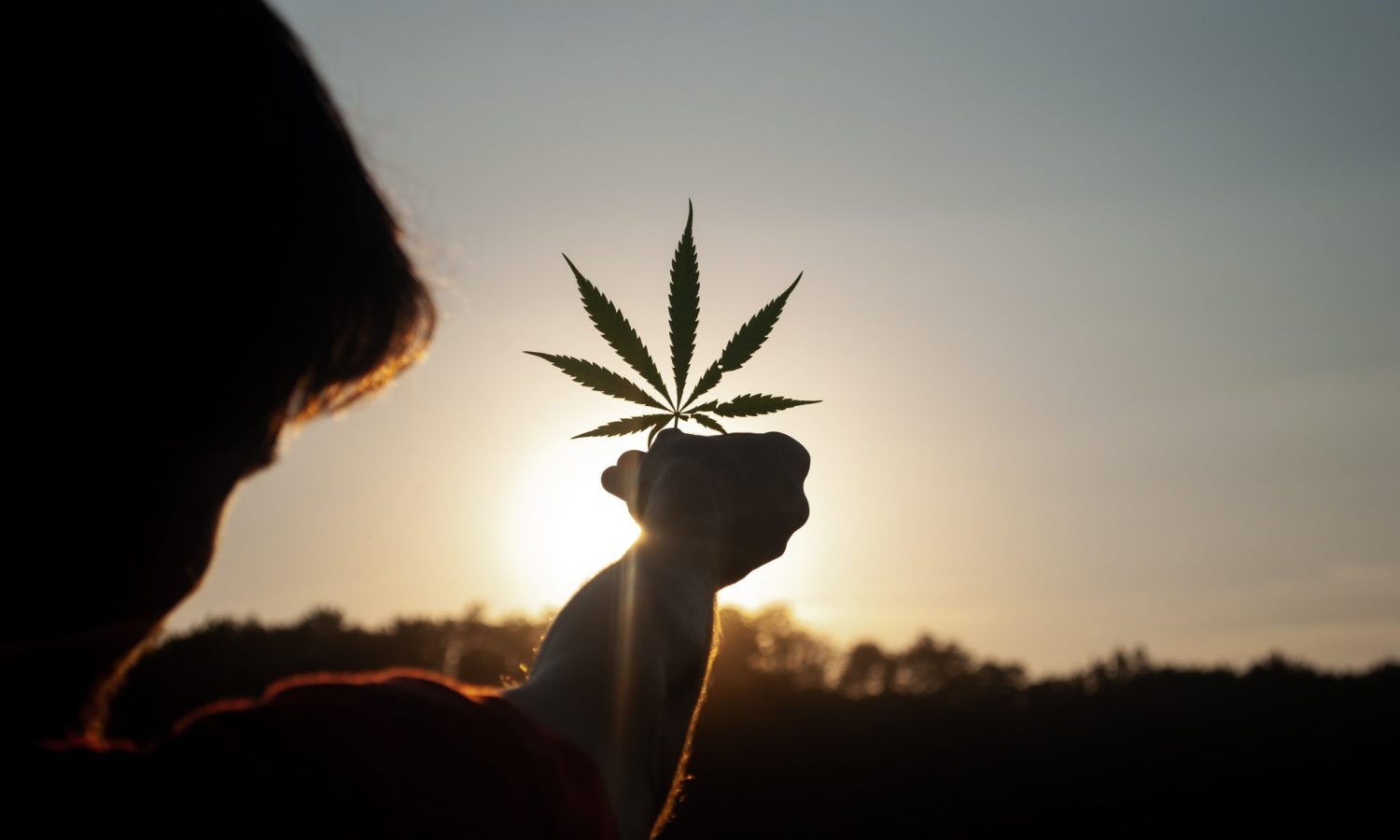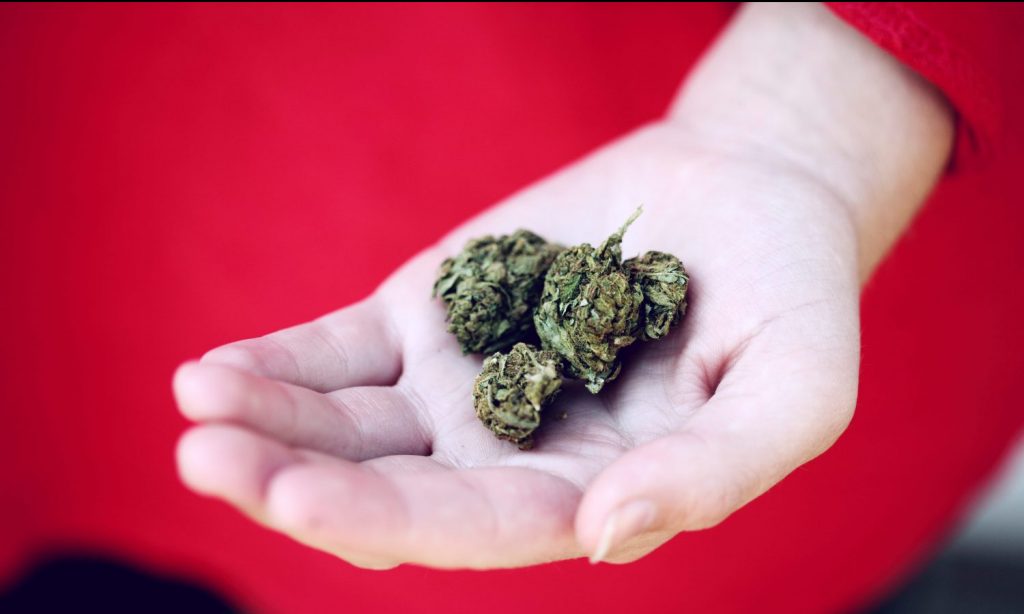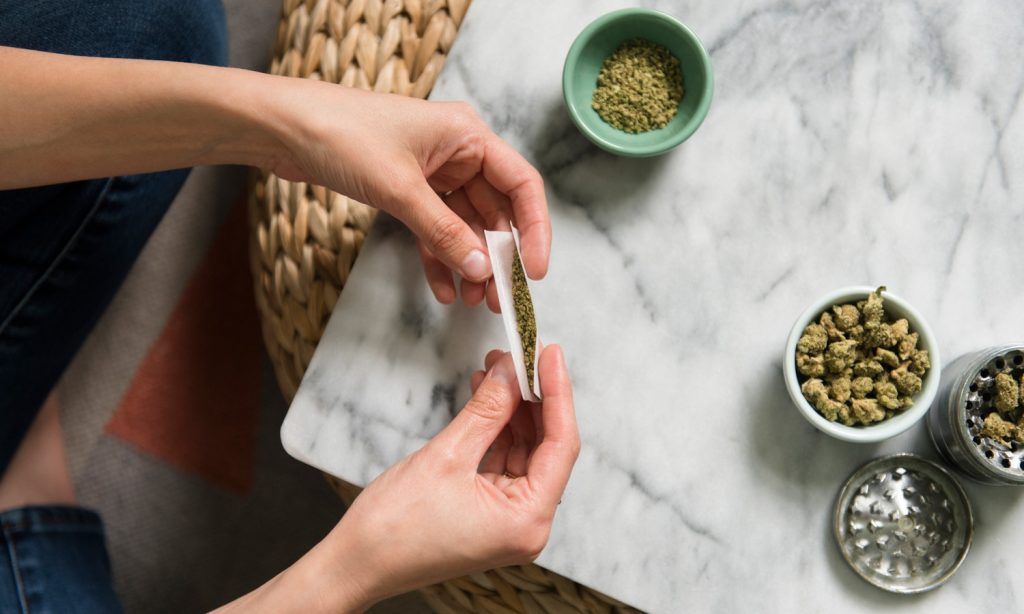You are here
Home 🌿 Recreational Marijuana News 🌿 Marijuana Can Be Addictive — Here’s How To Spot The Signs Of Cannabis Use Disorder 🌿Marijuana Can Be Addictive — Here’s How To Spot The Signs Of Cannabis Use Disorder

Spotting the symptoms of marijuana addiction isn’t all that simple. Here’s what you should know.
Years of research has proved that the marijuana plant provides far more benefits than side effects. The majority of people can use cannabis without developing an addiction to it. Still, it is possible to develop a marijuana addiction, one that can be limiting and harmful to people’s lives.
Cannabis use disorder (CUD) affects about 30% of marijuana users, impairing their lives to a degree that affects their relationships and overall health.

Photo by Sharon McCutcheon via Unsplash
According to the Diagnostic and Statistical Manual of Mental Disorders (DSM-5), the manual used by mental health practitioners to diagnose mental health conditions and disorders, a person must meet two out of 11 requirements to be diagnosed with CUD. These are extensive and include marijuana cravings, the development of interpersonal problems due to cannabis use, or using the plant when in a dangerous situation.
Among marijuana users, the ones more likely to develop an addiction are adolescents. Studies show how important it is to understand cannabis use in adolescents. Since their brains are still developing, copious marijuana use could impact their future and their brain’s make up.

Photo by Jamie Grill/Getty Images
Other factors that increase the odds of developing a reliance on marijuana include people coping with mental health conditions like depression and anxiety and the influence of genetics.
It’s difficult to spot symptoms of marijuana withdrawal. They include irritability, nervousness, aggression, sleep disturbances, headaches and more. People who are addicted to cannabis have similar experiences to those who are addicted to cigarettes, finding themselves fidgeting or needing to increase their dose over time in order to have the same experience they used to. Like all addictions, if someone finds themselves having arguments with their family or putting themselves in dangerous situations because of marijuana, it’s very possible they have a problem.
In order to manage this condition, it’s important to stop your usage for a period of time and to monitor your body’s response to it. If you’re unable to get through a period of a week or two without using marijuana, you might need to get professional help from a psychologist or psychiatrist. Common treatments include the use of Cognitive Behavioral Therapy (CBT), which is the first resource used for treating different kinds of addictions.
420 Intel is Your Source for Marijuana News
420 Intel Canada is your leading news source for the Canadian cannabis industry. Get the latest updates on Canadian cannabis stocks and developments on how Canada continues to be a major player in the worldwide recreational and medical cannabis industry.
420 Intel Canada is the Canadian Industry news outlet that will keep you updated on how these Canadian developments in recreational and medical marijuana will impact the country and the world. Our commitment is to bring you the most important cannabis news stories from across Canada every day of the week.
Marijuana industry news is a constant endeavor with new developments each day. For marijuana news across the True North, 420 Intel Canada promises to bring you quality, Canadian, cannabis industry news.
You can get 420 Intel news delivered directly to your inbox by signing up for our daily marijuana news, ensuring you’re always kept up to date on the ever-changing cannabis industry. To stay even better informed about marijuana legalization news follow us on Twitter, Facebook and LinkedIn.




